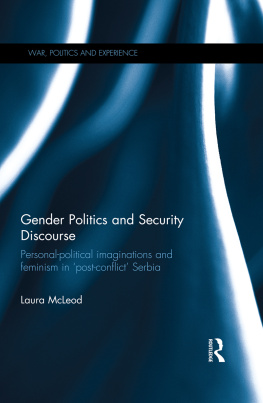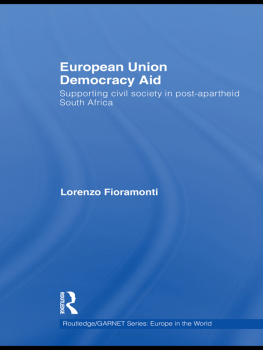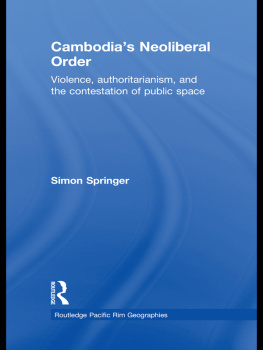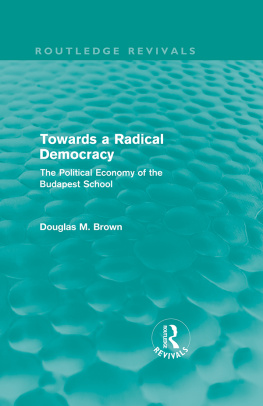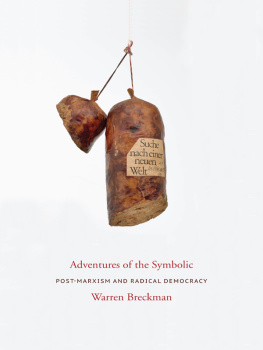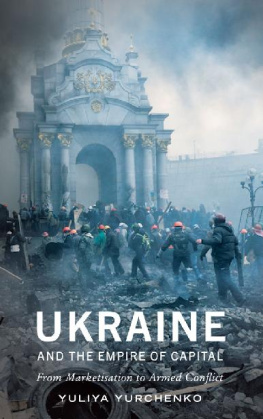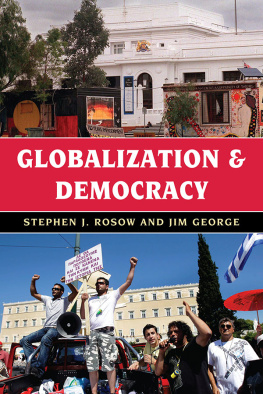DEMOCRACY STRUGGLES
DISLOCATIONS
General Editors:August Carbonella, Memorial University of Newfoundland; Don Kalb, University of Bergen & Utrecht University; Linda Green, University of Arizona
The immense dislocations and suffering caused by neoliberal globalization, the retreat of the welfare state in the last decades of the twentieth century, and the heightened military imperialism at the turn of the twenty-first century have raised urgent questions about the temporal and spatial dimensions of power. Through stimulating critical perspectives and new and cross-disciplinary frameworks that reflect recent innovations in the social and human sciences, this series provides a forum for politically engaged and theoretically imaginative responses to these important issues of late modernity.
For a full volume listing, please see back matter.
DEMOCRACY STRUGGLES
NGOs and the Politics of Aid in Serbia
Theodora Vetta

First published in 2019 by
Berghahn Books
www.berghahnbooks.com
2019 Theodora Vetta
All rights reserved. Except for the quotation of short passages for the purposes of criticism and review, no part of this book may be reproduced in any form or by any means, electronic or mechanical, including photocopying, recording, or any information storage and retrieval system now known or to be invented, without written permission of the publisher.
Library of Congress Cataloging-in-Publication Data
Names: Vetta, Theodora, author.
Title: Democracy struggles : NGOs and the politics of aid in Serbia / Theodora Vetta.
Description: New York : Berghahn Books, [2018] | Series: Dislocations ; 25 | Includes bibliographical references and index.
Identifiers: LCCN 2018026305 (print) | LCCN 2018035065 (ebook) | ISBN 9781789201000 (ebook) | ISBN 9781789200997 (hardback : alk. paper)
Subjects: LCSH: Democratization--Serbia. | Non-governmental organizations--Serbia. | Serbia--Social conditions--21st century.
Classification: LCC JN9656 (ebook) | LCC JN9656 .V48 2018 (print) | DDC 327.1/11--dc23
LC record available at https://lccn.loc.gov/2018026305
British Library Cataloguing in Publication Data
A catalogue record for this book is available from the British Library
ISBN 978-1-78920-099-7 hardback
ISBN 978-1-78920-100-0 ebook
CONTENTS
ACKNOWLEDGMENTS
This book is the outcome of years-long relationships and discussions in university classrooms, pubs, workshops, conferences, and informal soirees. Above all, I would like to thank my thesis supervisor and friend Jonathan Friedman for his immense intellectual inspiration and continual encouragement through all the phases of research and writing. Im grateful to Don Kalb for his strong support in making this publication happen, and for years of exciting intellectual debates. I also would like to thank Alexandra Bakalaki, Dan Belchita, Tassos Grigorakis, Anna Hedlund, Barbara Karatsioli, Dimitra Kofti, Yannis Mylonas, Susana Narotzky, Slobodan Naumovi, Jaime Palomera, Boris Petric, Katerina Polychroniadi, Steven Sampson, and Berghahn Books reviewers and editors for their insightful comments and help in various parts of the book.
The research was financially supported by the A. G. Leventis Foundation and the Marie Curie SocAnth Program Promoting Anthropology in Central and Eastern Europe (FP6-MOBILITY, Project reference: 20702). The writing was partially funded by the Swedish Institute and editing by the European Research Council Advanced Grant Grassroots Economics: Meaning, Project and Practice in the Pursuit of Livelihood (IDEAS-ERC FP7, Project Number: 323743).
My most profound gratitude goes, of course, to all the participants of this study in Serbia who gave me their time, shared their views and experiences, allowed me to observe their work, and welcomed me into their homes. I particularly want to thank Jelka, Jovan, Marinko, Nadja, Tanja, and Tnde I learned so much. Last but not least, I would like to thank with all my heart my parents, Yiannis and Kyriaki, my partner, Darko, and my close friends back home in Greece, who stood by me in good and bad times. I dedicate this book to them, fighting this shameless war. Venceremos.
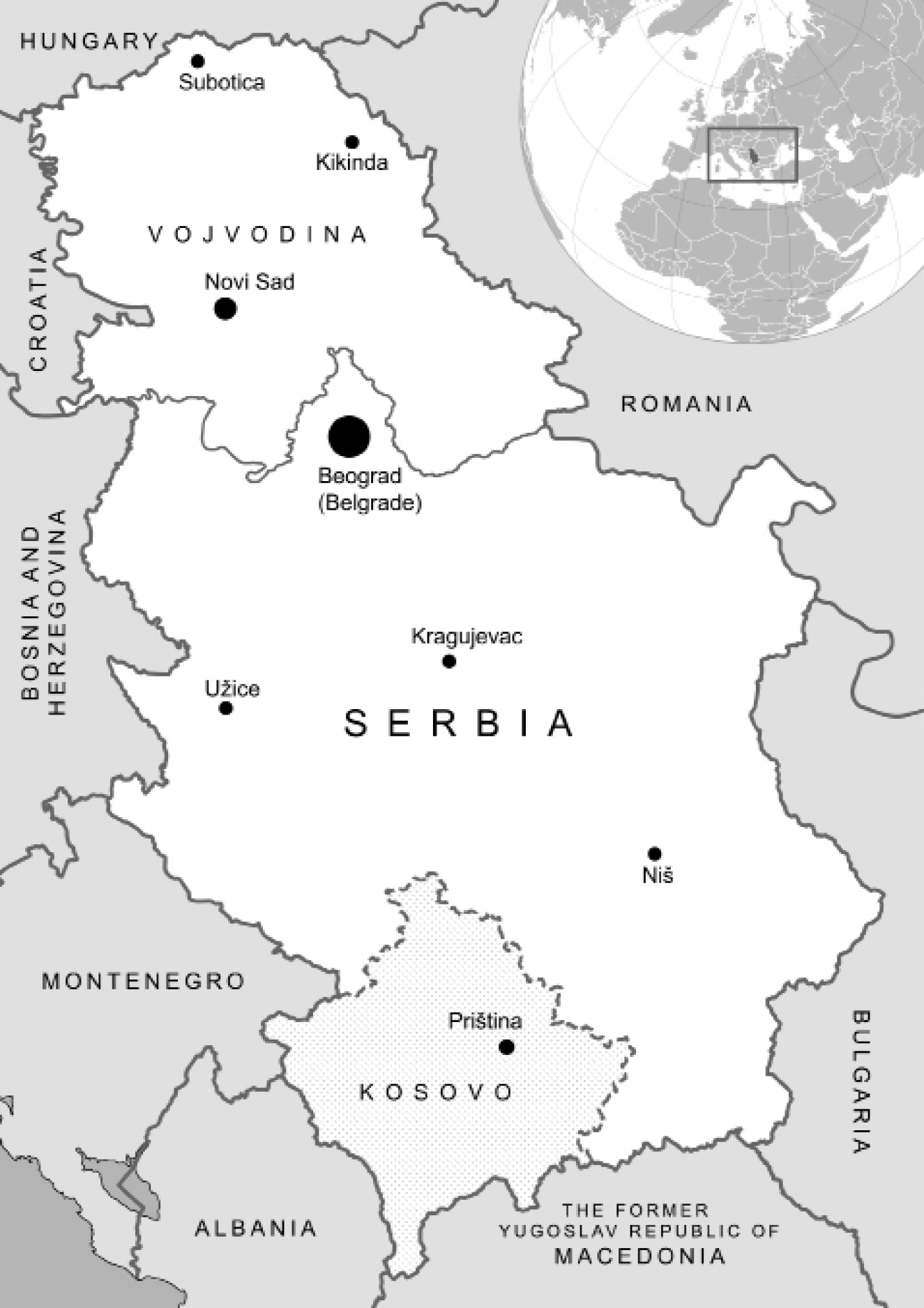
Map of Serbia. Created by Darko Ivanevi, based on maps from Wikipedia Creative Commons (https://commons.wikimedia.org/wiki/File:Serbia_location_map.png by WhiteWriter and https://commons.wikimedia.org/wiki/File:Location_of_Serbia_(globe).svg by MazzyBor). Used with permission.
INTRODUCTION
If it wasnt for the NGOs here, this whole country would extinct! We were the only genuine democratic force against Miloevi and even if we were working in impossible conditions, we managed to throw him down. I am talking here about genuine activism. And its not only during 2000, when at times we risked our lives. Then the situation was its either now or never. But things started much earlier. We started much earlier. I remember we had these walks for months with thousands of Belgraders and of course students it was so exhausting! Sometimes I look back and I still do not know how we made it, walking all day every day around the city. It was freezing. Here, if you do not believe me, I will show you my shoes from 1996. You should see the soles, totally melted. I kept them as as a souvenir! They are Italian by the way. As we used to say, Samo Setnja Srbina Spasava [only walk can save the Serbs].
Goran, personal interview, June 2006
Only Walk Can Save the Serbs was a parody of the national saying Samo Sloga Srbina Spasava (Only Unity Can Save the Serbs) that had taken on ultra-nationalistic tones during the violent Yugoslav conflicts in the beginning of the 1990s. The new twisted version became the slogan of marches that started in November 1996. Serbia had already been transformed into a multiparty system back in 1990, and the Socialist Party of Serbia (successor to the League of Communists of Serbia), having led rallies against corruption and bureaucracy but also promising national security and economic recovery, occupied both parliament and presidency (Goati 2000; Sotirovi 2009). Yet in 1996, a year after the signature of the Dayton Peace Accords putting an end to the tragic wars, the oppositional pro-democratic coalition Zajedno (Together) managed to out cast the Socialist Party of Serbia during the local government elections, winning in thirty-two municipalities, including the capital of Belgrade. The attempted electoral fraud of the regime prompted massive mobilizations that lasted for three months and ended with the official recognition of the electoral results.
This was the first time a serious internal threat was posed to the President Slobodan Miloevi, otherwise known as Europes Last Dictator. Goran, a forty-five-year-old lecturer and my Serbian language teacher when I first arrived in Belgrade in spring 2006, recalled these events with pride. Being involved back then in an educational NGO network, he felt like that pair of old brown boots was the epitome of his youth achievements, his small-yet-vital role in writing the democratic history of his country. As it was with most of the older NGO staff I met, he took part in numerous pro-democratic protests held in Belgrade after the outbreak of the war. The sociologist Marina Blagojevi, herself involved in various NGO activities, has characterized the 1990s as a history of protests (2006), culminating in a series of demonstrations in 2000 and the final overthrown of Miloevi during the so-called Bulldozer Revolution on 5 October 2000. Local NGOs played an important role in these events. Based on experiences from the pre-election campaigns OK98 in Slovakia and Vote 99 in Croatia, they organized the Izlaz 2000 [Exit 2000] campaign, encouraging people to get out and vote so that the sun would exit and no bigger dark would reign (Paunovi et al. 2000). Yet, their political actions had started much earlier with many newly established organizations running civic and human rights initiatives during the late 1980s and anti-militarist campaigns during the early 1990s (e.g., Stojanovi, Zajovi, and Uroevi 2013). By the time I started my research at the end of 2006, Serbia had already experienced its own associational revolution.
Next page


